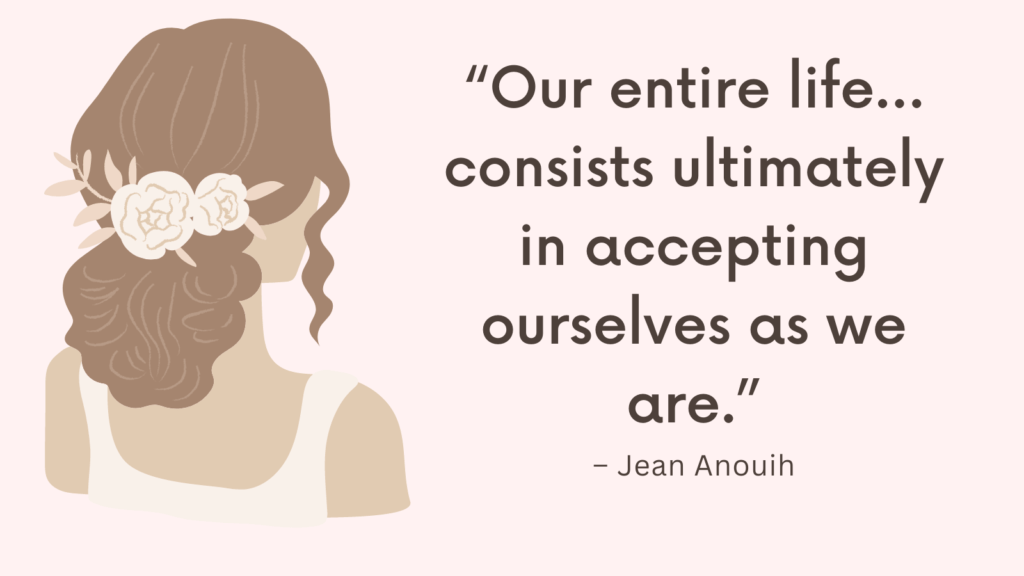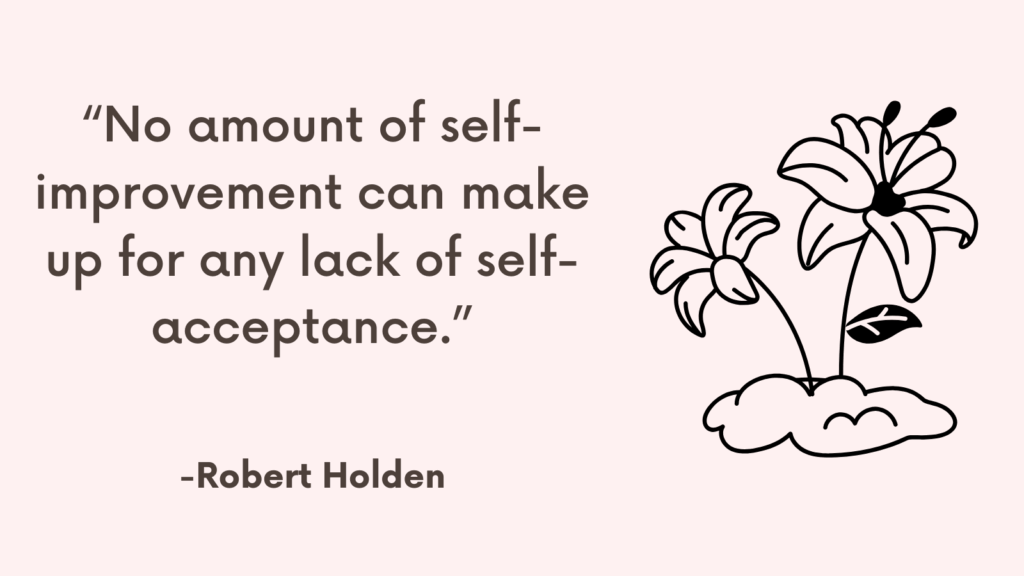This posts answers commonly asked questions about confidence, including “Is confidence and emotion?” and “How to increase self-confidence?”
- What is confidence?
- Is confidence an emotion?
- What are some signs of low self-confidence?
- What’s the difference between self-esteem and self-confidence?
- Are there different types of confidence?
- Is it possible to be too confident?
- How to increase self-confidence?
- Are there specific techniques to boost confidence before public speaking?
- How can parents help foster confidence in their children?
- Conclusion
What is confidence?
Confidence is a psychological state characterized by a strong belief in one’s own abilities, worth, and judgment.
It involves having faith in oneself, feeling assured in one’s actions and decisions, and possessing a sense of self-assurance and self-esteem.
Confidence can manifest in various areas of life, such as personal relationships, professional endeavors, academic pursuits, and social interactions.
Confidence is not necessarily about being perfect, having all the answers, or never experiencing self-doubt.
It’s more about having a balanced perception of oneself and the belief that one has the skills, competence, and resources to handle challenges and achieve desired outcomes.
It allows individuals to take risks, embrace new opportunities, and persist in the face of setbacks or failures.
Confidence is often influenced by past experiences, achievements, support systems, self-perception, and external factors. It can vary from person to person and across different situations.
Building and maintaining confidence requires self-awareness, positive thinking patterns, self-compassion, practice, and continuously challenging oneself to grow and learn.
It is worth noting that confidence is not synonymous with arrogance or overconfidence.
True confidence is rooted in a healthy self-image and the recognition of both strengths and areas for improvement.
It is a mindset that can be developed and nurtured through various techniques, strategies, and therapeutic interventions.
Is confidence an emotion?
Confidence is not considered an emotion but rather a psychological state or trait.
Emotions, such as happiness, fear, anger, or sadness, are typically temporary and relatively short-lived states that arise in response to specific situations or stimuli.
Confidence, on the other hand, is a more enduring belief in oneself, abilities, and potential.
Confidence can influence how someone feels, behaves, and acts, but it is not classified as an emotion itself.
It is often associated with positive emotions such as pride or self-assurance, but it is not inherently an emotion.
It’s important to note that confidence can vary across different areas of life, as individuals may feel confident in some domains (e.g., public speaking) while lacking confidence in others (e.g., social interactions).
Related: How Confident Am I Quiz (+Best 13 Practical Tools To Feel More Confident)
What are some signs of low self-confidence?
Signs of low self-confidence can vary from person to person, but here are some common indicators:
1. Negative self-talk: Constantly engaging in self-critical and self-deprecating thoughts, such as “I’m not good enough” or “I always mess things up.”
2. Fear of failure: Avoiding challenges or taking risks due to a deep-seated fear of making mistakes or being judged negatively by others.
3. Seeking constant validation: Relying heavily on external approval and constantly seeking reassurance from others to feel validated or worthy.
4. Avoidance of social situations: Feeling anxious or uncomfortable in social settings, avoiding meeting new people, or struggling to express oneself due to a fear of being judged or rejected.
5. Difficulty accepting compliments: Dismissing or downplaying compliments or positive feedback, feeling unworthy of praise.
6. Comparing oneself to others: Frequently comparing oneself unfavorably to others, feeling inadequate or lacking in comparison.
7. Perfectionism: Setting excessively high standards for oneself and feeling a sense of failure or disappointment when those standards are not met.
8. Lack of assertiveness: Having difficulty expressing opinions, needs, or desires, often deferring to others and disregarding one’s own preferences.
9. Constant self-doubt: Questioning one’s abilities, second-guessing decisions, and feeling unsure about oneself and one’s capabilities.
10. Limited self-care: Neglecting personal well-being, both physically and emotionally, as a result of prioritizing others’ needs over one’s own.
If you resonate with any of these signs, it may be beneficial to explore strategies and techniques to enhance your self-confidence.
Related: Best 10 Confidence Books
What’s the difference between self-esteem and self-confidence?
Self-esteem and self-confidence are related but distinct concepts in psychology.
Self-esteem refers to an individual’s overall sense of self-worth or the value they ascribe to themselves. It involves how you perceive and evaluate yourself based on your beliefs, abilities, achievements, and self-image.
Self-esteem is often influenced by early life experiences, social interactions, and one’s internal dialogue.
High self-esteem means having a positive self-regard, while low self-esteem reflects a negative or critical view of oneself.
On the other hand, self-confidence refers to a belief in one’s own abilities, skills, and competence to achieve specific goals or tasks.
It is more situational and task-specific, focusing on your belief in your capacity to succeed in particular areas.
While self-esteem is generally a broader evaluation of oneself, self-confidence is more specific and contextual.
Both aspects are important for overall psychological well-being, and working on improving both can lead to a more positive and fulfilling life.
Related: Self Esteem vs Self Confidence
Are there different types of confidence?
Yes, there are different types of confidence that can apply to various areas of life. Here are a few types of confidence commonly recognized in psychology:
1. Self-efficacy
This refers to the belief in one’s ability to accomplish specific tasks or goals.
Self-efficacy is domain-specific and can vary across different areas, such as academic, athletic, or artistic pursuits.
Higher self-efficacy leads to greater motivation, perseverance, and ultimately, improved performance.
2. Social confidence
Social confidence relates to how comfortable and assured someone feels in social interactions and relationships.
It involves having a positive self-image, effective communication skills, assertiveness, and the ability to maintain healthy boundaries.
Social confidence can affect one’s ability to form connections, express themselves, and navigate social situations with ease.
Related: Best 18 Journal Prompts For Confidence
3. Body confidence
Body confidence pertains to an individual’s acceptance and positive perception of their physical appearance.
It involves feeling comfortable in one’s own skin, appreciating body diversity, and having a healthy body image.
Developing body confidence can improve overall well-being and contribute to a positive self-image.
4. Public speaking confidence
Public speaking confidence refers specifically to one’s comfort and competence in delivering presentations or speeches to an audience.
It involves managing anxiety, conveying ideas effectively, and projecting confidence through nonverbal cues.
Building public speaking confidence can enhance professional opportunities and personal growth.
5. Emotional confidence
Emotional confidence relates to one’s ability to manage and regulate their emotions effectively.
It encompasses self-awareness, emotional resilience, and the capacity to navigate challenging situations with emotional intelligence.
Emotional confidence supports mental well-being and fosters healthy relationships.
It’s essential to recognize that these types of confidence can interact and overlap with each other.
Working on improving any area of confidence can have a positive ripple effect on other aspects of life.
Related: Top 10 Ways To Stop Wallowing In Self Pity
Is it possible to be too confident?
Yes, it is possible for confidence to become excessive or problematic.
While confidence is generally considered a positive trait, an extreme level of confidence can lead to detrimental outcomes.
This excessive confidence is often referred to as overconfidence. Here are a few potential issues associated with overconfidence:
1. Unrealistic self-perception
Overconfident individuals may have an inflated sense of their abilities, leading them to overestimate their competence and underestimate risks or challenges.
This can result in poor decision-making, as they may not adequately consider potential pitfalls or seek necessary support or guidance.
2. Lack of self-awareness
Excessive confidence can hinder self-awareness, making it difficult for individuals to recognize their limitations or areas that require improvement.
They may be resistant to feedback or constructive criticism, which can hinder personal and professional growth.
3. Disregard for others’ perspectives
Overconfident individuals may dismiss or disregard the input, ideas, or expertise of others.
They may believe their own opinions or judgments are superior, leading to difficulties in collaboration and strained relationships.
4. Risky behavior
Overconfidence can lead individuals to engage in risky behavior or take on tasks beyond their actual capabilities.
This can increase the likelihood of failure, accidents, or detrimental consequences.
It is important to maintain a balance between confidence and humility.
Healthy self-confidence involves being aware of one’s strengths and limitations while remaining open to feedback, continuous learning, and adapting to new situations.
Related: Top 18 Self Esteem Exercises (+FREE CBT For Self-Esteem Worksheets PDF)
How to increase self-confidence?
Increasing self-confidence is a gradual and personal process, but the following are some suggestions to help you along the way:
1. Identify and challenge negative thoughts
Pay attention to your self-talk and recognize negative or self-critical thoughts.
Challenge them by asking the following questions:
- Is there evidence to support this thought? What are the facts?
- What alternative explanations or interpretations are possible?
- What would I say to a friend who has a similar thought? Would I view it as realistic or distorted?
- How accurate or fair are my thoughts about myself, others, or the world?
- What would be a more balanced or helpful way to think about this situation?
2. Set realistic and attainable goals
Break down larger goals into smaller, achievable steps.
Celebrate each milestone reached, as this will boost your confidence and motivation.
3. Practice self-compassion
Treat yourself with kindness and understanding, especially during setbacks or failures.
Begin by noticing and acknowledging any negative or self-critical thoughts or emotions that arise within you. It could be feelings of shame, guilt, or inadequacy.
Once you become aware of these emotions, respond to yourself with kindness and understanding, just as you would to a close friend. Speak to yourself in a gentle and compassionate tone.
Choose words and phrases that are nurturing and comforting.
For example, you might say, “It’s okay to make mistakes; I am learning and growing,” or “I am worthy of kindness and understanding.”
Related: How To Be Gentle With Yourself? Top 5 Ways To Practice Self-Compassion
4. Build on strengths
Reflect on the qualities, skills, and attributes that come naturally to you and bring you joy.
These can be things like creativity, kindness, perseverance, or critical thinking.
Find opportunities in your daily life where you can apply your strengths.
For example, if you have strong interpersonal skills, volunteer for projects that involve teamwork or communication.
Regularly reflect on how you are utilizing your strengths and how they positively impact your life. Journaling or mindfulness exercises can help with this process.
Seek opportunities to further develop your strengths through training programs, courses, or workshops.
Continual learning and personal growth can enhance your proficiency and expand your capabilities.
5. Seek support
Surround yourself with positive and supportive individuals who believe in you.
Their encouragement and constructive feedback can help boost your confidence and provide a sense of validation.
6. Step outside your comfort zone
Challenge yourself to try new experiences and take calculated risks.
Each time you push beyond your comfort zone, you expand your capabilities and demonstrate resilience, ultimately boosting your self-confidence.
Related: Best 14 Books About Imposter Syndrome
7. Practice self-care
Prioritize activities that promote physical and mental well-being, such as exercise, proper nutrition, sufficient sleep, and relaxation techniques.
Taking care of yourself helps foster a positive self-image and overall confidence.
8. Prepare and rehearse
Develop your skills and knowledge in areas where you feel less confident.
The more prepared you are for a task or situation, the more confident you will feel about tackling it.
Are there specific techniques to boost confidence before public speaking?
Public speaking can be intimidating for many people, but there are techniques you can use to boost your confidence before and during a presentation.
Here are a few scientifically-supported strategies:
1. Prepare and practice: Thoroughly prepare your content and rehearse your speech multiple times. The more familiar you are with your material, the more confident you will feel when delivering it.
2. Visualize success: Use visualization techniques to imagine yourself speaking confidently and engaging your audience. This practice helps reduce anxiety and builds confidence by creating positive mental images.
3. Controlled breathing: Prior to your presentation, practice deep breathing exercises to calm your nervous system. Slow, deep breaths can help reduce anxiety symptoms and promote a sense of relaxation.
4. Focus on the audience: Shift your attention away from your own anxiety and focus on connecting with your audience. Keep in mind that they want you to succeed and are interested in what you have to say. Remembering this can help alleviate self-consciousness.
5. Use positive self-talk: Replace negative thoughts or self-doubt with positive affirmations. Remind yourself of past successes or instances where you have spoken effectively in front of others.
6. Start with smaller audiences: If possible, start by speaking in front of smaller groups or participate in public speaking workshops or clubs. Gradually expose yourself to larger audiences to build your confidence over time.
7. Embrace imperfections: Accept that making mistakes or experiencing nerves is normal. Instead of dwelling on perceived flaws, focus on delivering your message with authenticity and enthusiasm.
Related: How To Break The Cycle Of Performance Anxiety?
How can parents help foster confidence in their children?
Parents play a vital role in nurturing their children’s confidence.
Here are some scientifically-supported strategies that can help foster confidence in children:
1. Provide unconditional love and support
Show your child that you love and accept them for who they are, regardless of their achievements or failures.
This creates a safe and secure environment for them to develop confidence.
2. Encourage autonomy
Allow your child to make decisions and take on age-appropriate responsibilities.
Giving them independence and trusting their abilities helps build self-confidence and a sense of competence.
3. Praise effort and perseverance
Instead of solely focusing on outcomes, recognize and praise your child’s efforts, hard work, and progress.
This encourages a growth mindset and teaches them to value resilience and perseverance.
4. Set realistic expectations
Help your child set achievable goals based on their individual strengths and abilities.
Setting unrealistic expectations can lead to feelings of inadequacy, while realistic goals promote the development of confidence through small successes.
5. Encourage healthy risk-taking
Support your child in trying new activities and facing challenges.
Encouraging them to step out of their comfort zone, even if it involves some failure, helps them build resilience and confidence in their abilities.
6. Foster positive self-talk
Teach your child to recognize and challenge negative self-talk or self-doubt.
Encourage them to replace negative thoughts with positive affirmations and to focus on their strengths and accomplishments.
7. Model self-confidence
Children often learn by observing their parents.
Display confidence in your actions, embrace mistakes as learning opportunities, and demonstrate self-compassion.
Your own self-confidence can inspire and influence your child positively.
8. Provide constructive feedback
When offering feedback or correction, focus on specific behaviors rather than making personal judgments.
Help your child understand that mistakes are a part of the learning process and provide guidance on how they can improve.
Remember that each child is unique, so it’s important to tailor your approach to their individual needs and temperament.
Conclusion
Building confidence takes time and effort, but with the right support and tools, it is possible to develop a healthier and more resilient sense of self-assurance.
Be patient with yourself and seek professional help from a psychologist or therapist if needed. They can provide personalized guidance and strategies tailored to your specific needs.



